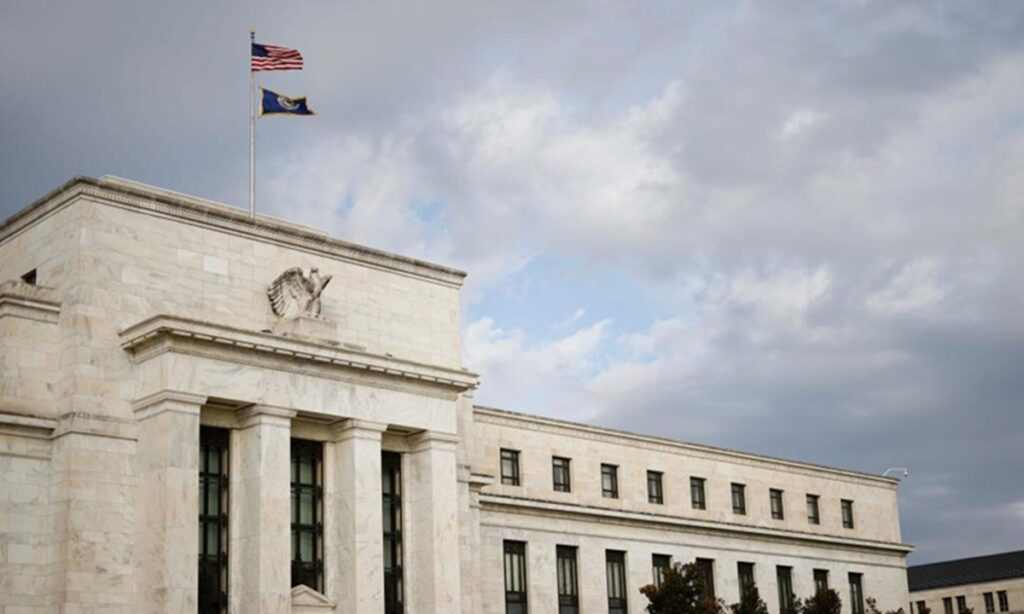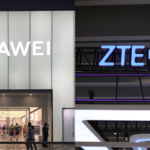When the US economy is sick, the world has to take medicine: Chinese expert
The US Federal Reserve’s decision to keep interest rates unchanged while maintaining a hawkish policy stance hints at profound risks for the US economy more than confidence in a “solid” economy, Chinese economists said on Thursday.
The Fed’s inaction despite still high inflation shows limitations of US monetary policies to tackle an intricate set of risks and challenges, ranging from high inflation and record debt to a looming government shutdown. All of these risks could lead to serious problems for the US economy, which has otherwise shown signs of strong growth, economists said.
What happens in the world’s largest economy could also mean serious implications for the global economy, particularly developing countries, experts said. The danger the US economy poses for the global economy is in stark contrast to China’s contribution to global growth, despite US officials and media’s lurid claims about the Chinese economy, experts said.
Profound risks
Following its latest policy meeting, the Fed on Wednesday US time decided to keep interest rates unchanged despite still high inflation. While the decision on interest rates was largely in line with market expectation, Fed officials surprisingly strengthened a hawkish policy stance that they can tame inflation, while keeping a “solid” economy with a “strong” job growth. The Fed is expected to raise rates one more time this year, according to media reports.
“My feeling is that the Fed didn’t dare to make any move because the US economy is mired in a slew of complex factors, where it cannot control inflation by simply raising rates,” Li Yong, a senior research fellow at the China Association of International Trade, told the Global Times on Thursday. “In such a situation, if rates are further lifted, the US economy will sputter.”
Since early 2022, the Fed has mounted an aggressive campaign to tame runaway inflation, resulting in serious implications for US banks and debt issues in developing countries. After the failure of several US banks earlier this year, the Fed has temporarily stopped rate hikes. The US benchmark interest rate remains at a 22-year high, while inflation remains well above the Fed’s target. In August, US inflation rose to an annual rate of 3.7 percent, the first increase since June 2022 and well above the Fed’s target of 2 percent.
The Fed’s latest decision “also reflects a lack of confidence in the recovery of the US economy. It’s not sure about what economic effects further rate hike would bring,” Li said.
While some US economic indicators suggest a rosy recovery – with headline GDP growth hitting a better-than-expected annualized pace of 2.4 percent in the second quarter, there are a slew of risks and challenges. Apart from the still high inflation, the US also faces mounting debt, which hit $33 trillion, a historic milestone.
Moreover, bitter partisan fights at the US Congress over debt and spending issues also threaten to shut down the US government once again. After the US averted a historic default on its debt in May with a temporary deal, the US Congress has so far failed to come up with a spending bill that will keep funding the US government. US media outlets suggested that a government shutdown on October 1 seems “inevitable.” If the US government does shut down, it would “cause a loss of momentum” for the US economy, which has otherwise shown no sign of a “downturn,” US Treasury Secretary Janet Yellen warned on Monday.
In addition to record debt and a looming government shutdown, there are also a slew of other problematic signs for the US economy, including surging gas prices, a particularly sensitive issue for US consumers, a strike by auto workers, falling median household income and a rise in poverty, according to US media reports.
Despite some so-called better-than-expected economic indicators, “what we need to watch out for is how risks have accumulated in the US economy and how it could lead to a major implosion,” Hu Qimu, a deputy secretary-general of the digital-real economies integration Forum 50, told the Global Times on Thursday.
Global implications
US economic policymaking -or the lack of it- has serious repercussions for the global economy as a whole. For example, if the Fed continues to raise rates, many countries around the world, in order to maintain healthy capital flows, will have to raise their own interest rates, which will undercut their economic recovery. Fed interest rate hikes also mean a stronger US dollar, which also means higher debt payment for many developing countries, whose external debts are often in US dollar-denominated terms.
“The result is that when the US is sick, the entire globe has to take medicines,” Li said, adding that the US domestic economic risks and challenges pose a threat to the global economic recovery.
Apart from its domestic economic policies, the US government has also launched trade and tech wars, constantly imposing sanctions on other countries, which has caused turmoil in various global industrial and supply chains.
“In fact, the US’ desperate attempt to smear the Chinese economy actually makes me firmly believe that the US economy is in big trouble,” Hu said.
In recent months, seizing on some so-called less-than-expected economic indicators, US officials and media outlets have mounted an aggressive smear campaign against the Chinese economy, trying to paint a picture of a Chinese economy on the cusp of “collapsing.” Even President Joe Biden, who has record low approval ratings on his own performance in the economy, joined the campaign, saying the Chinese economy is a “time bomb” for the world, despite getting Chinese economic figures wrong.
However, experts say, it is the US economy that looks more like a “time bomb” for the world, given all the risks it faces and poses for the world economy. Meanwhile, despite downward pressure, the Chinese economy is showing growing signs of steadily recovering. The IMF and other global institutions have forecast that China will remain the fastest-growing major economy and the biggest contributor to global growth this year.
“Generally speaking, China’s role as a main engine for the global economic recovery will not change,” Hu said, citing to China’s technological breakthroughs and continuous industrial upgrade.
(Global Times)




